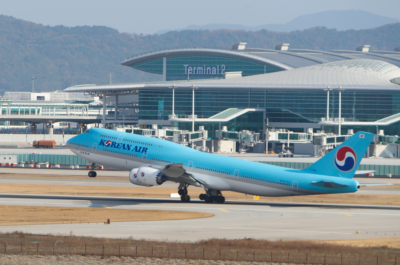…
 The hospitality and tourism industry is considered to be the largest industry in the world. Its success is judged by economic indicators such as tourism share of employment and GDP (gross domestic product), or growth in revenues. According to the World Travel & Tourism Council, 2007 proved to be the 4th consecutive year of health growth since 2004. The annual increase in travel and tourism economy GDP has averaged 4% in real terms. This is faster than that of the global economy overall. And in the same period travel and tourism has created more than 34 million jobs.
The hospitality and tourism industry is considered to be the largest industry in the world. Its success is judged by economic indicators such as tourism share of employment and GDP (gross domestic product), or growth in revenues. According to the World Travel & Tourism Council, 2007 proved to be the 4th consecutive year of health growth since 2004. The annual increase in travel and tourism economy GDP has averaged 4% in real terms. This is faster than that of the global economy overall. And in the same period travel and tourism has created more than 34 million jobs.
The long-term forecasts point to a mature but steady phase of growth for world Travel and Tourism between 2009 and 2018 with an average growth rate of 4.4% per annum, supporting 297 million jobs and 10.5% of global GDP by 2018. In 2020 the UNWTO envisages 1.6 billion travelers compared to around 900 million travelers in 2007.
These are all very impressive figures. But what do they mean? They mean that the Tourism and Hospitality industry is in dire need for human resources to accommodate this mammoth growth. It means that tourism can be the ideal choice for people who are looking for long-term career prospects.
It is vital that young people see tourism and hospitality as a serious and rewarding career choice. Yet not many do. Could it be that they are not well informed about the enormous opportunities that exist by, for instance, career counselors in their high schools, the media, the industry itself, family members or colleagues, or even government authorities representing the industry? Are they aware that young entrants and graduates of hotel management schools can move rapidly up the career ladder and with the proper higher education can aim to be in significant management positions by their mid 30’s. The biggest shortage over the next 10 years seems to be with semi-skilled labour, but the most critical area is with the skilled labour: managers and supervisors. In order to recruit top talent, the industry must speak out loud to attract bright youngsters to join it. The industry must attract young men and women who are looking to develop a career rather than only developing their skills. Employers who look to retain talent need to take more of a stake in their employees’ careers.
As Joelle Hellinckx, Hilton Hotels’ Driector of Resourcing for Europe, recently commented: “We are planning to open 121 new hotels in Europe by 2016 which, in terms of people, means that by 2011 we need 39 additional general managers and 104 operational managers. In Hilton we already have a large talent pool and have defined paths to reach general manager positions, but we need to find additional people to meet this demand.”
Starwood is opening 50 hotels each year over the next five years. “We identified that, by 2009, there would be a gap, so we launched ‘Grow global projects’,” said Jane Wright, Regional Director of Human Resources, Northwest Europe of Starwood. “The aim is to recognise people we can fast track, so that, in two years time, they will be able to take over the managerial roles.” The group is also working on strengthening its relationship with colleges in order to attract graduates from commerce and finance, as well as hospitality, backgrounds.
These are but two minute examples of the shortage in human resources that leading international hotel chains are experiencing.
What the young are probably not aware of is that the global tourism industry provides the largest selection of career prospects to young adults who pursue a quality education in this field. Today the industry is much more than hotel and restaurant enterprises. It now encompasses an array of companies that specialize in airlines, cruise lines, sports arenas and entertainment / amusement centers, senior living communities, car rentals, casinos, club management, real estate development, meeting planning, consulting, corporate managed services, finance companies with ties to investment banking , asset management, conference and convention management, facility design, catering, bed and breakfast operations, large chain restaurants, general brand management and franchise management, accounting, law, human resources and management training, information technology, travel agencies, and much more.
There are numerous opportunities for graduates in this field. Tourism enterprises are facing fierce competition. In order for them to be successful they need to hire graduates of universities with higher education in hospitality and tourism management who have talent and passion for our industry. The speed of change within the industry including change in customer expectations, competition, legislation, new technology, and economic factors emphasizes the need for the industry to anticipate these changes, be clear about its potential impact and make appropriate adjustments to management structures, roles and development. Thus, the need for graduates with a good solid higher education to facilitate and manage change, from strategic and operational perspectives is a must. Clever enterprises know this and hire only graduates with higher degrees in hospitality and tourism management.
As an industry professional, spread the word around and encourage young people to choose hospitality and tourism as a career and urge them to pursue a quality education to prepare themselves for promising leadership positions—they, and you, will be rewarded.
* Sybil Hofmann is President of Alpine Center, the Swiss Business School for Hospitality & Tourism Management Education in Greece





















































